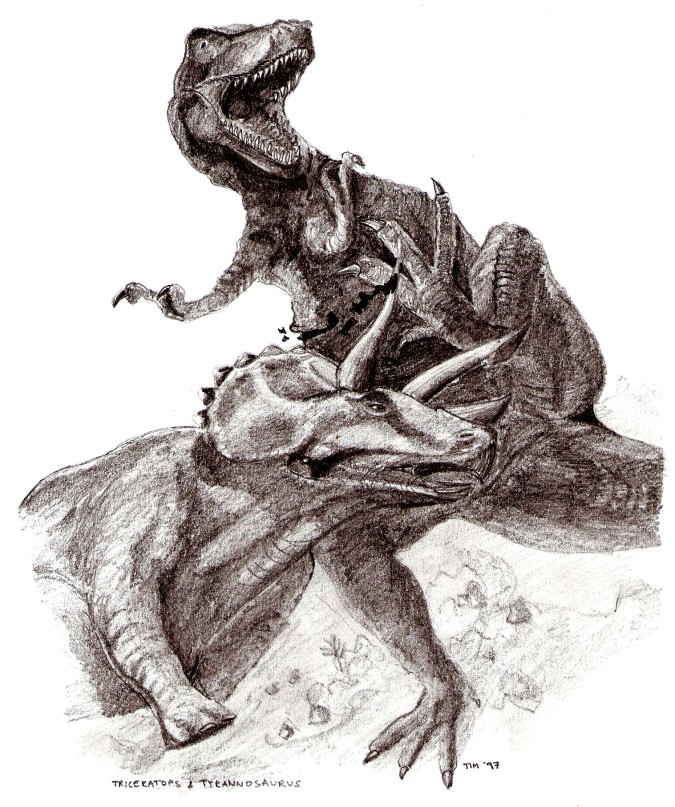
This work is in the public domain
Did you know?
- There are currently 5,254,654 articles on English Wikipedia
- All content (including discussion and sandboxes) is public
- Wikipedia has a list of “deleted articles with freaky titles”
- There is a special tag for dinosaur images that are anatomically inaccurate!
Wikipedia is the best example of what the ‘wisdom of crowds’ can achieve, although it is not without its detractors. To get an overview of the pros and cons, read the Wikipedia page about Wikipedia itself, and some of the pages linked to and from it. Wikipedia is often criticised as inaccurate or unreliable, but it is in fact one of the biggest sources of factual information online, and studies have shown that in many cases its accuracy compares favourably to other established online encyclopaedias. Even controversial Wikipedia articles can offer an excellent picture of the controversy itself via an article’s discussion page. Like any encyclopaedia, Wikipedia articles can be a great starting point for research.
Task
Many of you will already be familiar with Wikipedia itself and how to find information, but it pays to explore some of the article elements a bit further. Start by looking up some things that interest you, perhaps your research topic; see what Wikipedia says. One of the most useful elements of Wikipedia is its strong citation policy. Look at the references linked at the bottom of the page – whatever the merits of the Wikipedia article itself, this can be a good starting point for research elsewhere on the web.
Many people are unaware of the ‘history’ tab (top right) and ‘talk’ tab (top left) for Wikipedia articles. These can make very interesting reading, particularly for controversial articles or subjects where there are strong opposing viewpoints, as you can see how the current version (and consensus) has been reached. Here, readers can suggest changes that they think should be made and argue their points; the discussion can get very in-depth and occasionally heated! Take a look at the discussion for a few articles.
Exploring further
Wikipedia is only as good as its authors, and we encourage you to give editing a Wikipedia page a try. It’s easier than you might think! Wikipedia itself reach out to academics to edit their pages as is discussed in this article in Nature. Although you don’t need an account, we’d encourage you to set one up as it allows you to participate in discussions more easily and, though it may seem counterintuitive, allows you more anonymity (you can operate under a pseudonym with an account, but an anonymous edit records your IP address). Take a look at the Public Library of Science’s ‘Ten Simple Rules for Editing Wikipedia’ before you get started, and use Wikipedia’s markup cheat sheet as a guide. Wikipedia even keep a list of articles in need of expert attention so go and see how you can help.
Just one caveat: Do keep in mind that you’re not generally encouraged to edit information about your own company or organisation, as it may present a conflict of interest. If you’re worried about this, take a look at how the US National Archives have turned Wikipedia into a positive tool while avoiding these conflicts.
Exploring even further
Were you a bit disappointed by your findings when you tried to find the Wikipedia page for your research area? Well, who better to explain it than you!
If you can provide an impartial and evidence-based account of your research area, not only do you have another writing sample for people to engage with, you will also improve your citations and increase the potential interest in you as a researcher.
Here is Wikipedia’s guide to starting an article.
Further reading
- Wikipedia in higher education in The Guardian
- Wikipedia’s own guide to Evaluating Wikipedia Article Quality
- And not exactly reading, but check out Wikistream – an incredible live stream of additions and edits to Wikipedia pages all over the world
My PhD (and most of my research career) was in the field of Dielectrophoresis (DEP). Wikipedia has quite a lot on DEP.
https://en.wikipedia.org/wiki/Dielectrophoresis
I tried to avoid this page during my PhD, but in reading through it now, I can state without any doubt, my PhD supervisor has added quite a lot of input on the page 🙂
LikeLiked by 1 person
My PhD research investigated what goes wrong with your immune system in rheumatoid arthritis. People think that Rheumatoid Arthritis just affects your joints but it can cause problems in virtually every organ of the body: https://en.wikipedia.org/wiki/Rheumatoid_arthritis. Carol
LikeLike
and I got to work with these little guys during my PhD https://en.wikipedia.org/wiki/Breviceps the grumpy old man of the frog world. Sam.
LikeLike
Pingback: Digging a Little Deeper into Online Resources | The Medieval Otherside